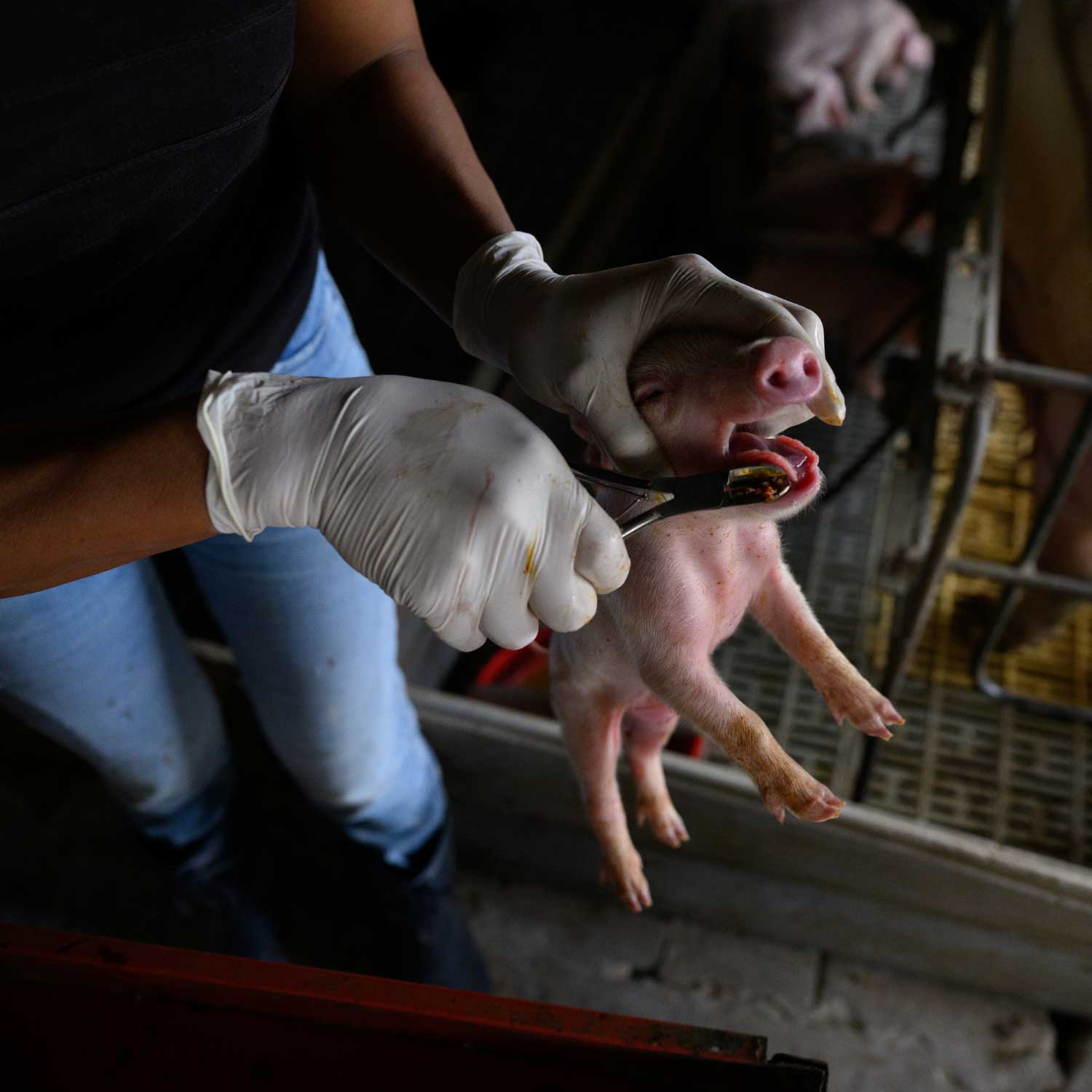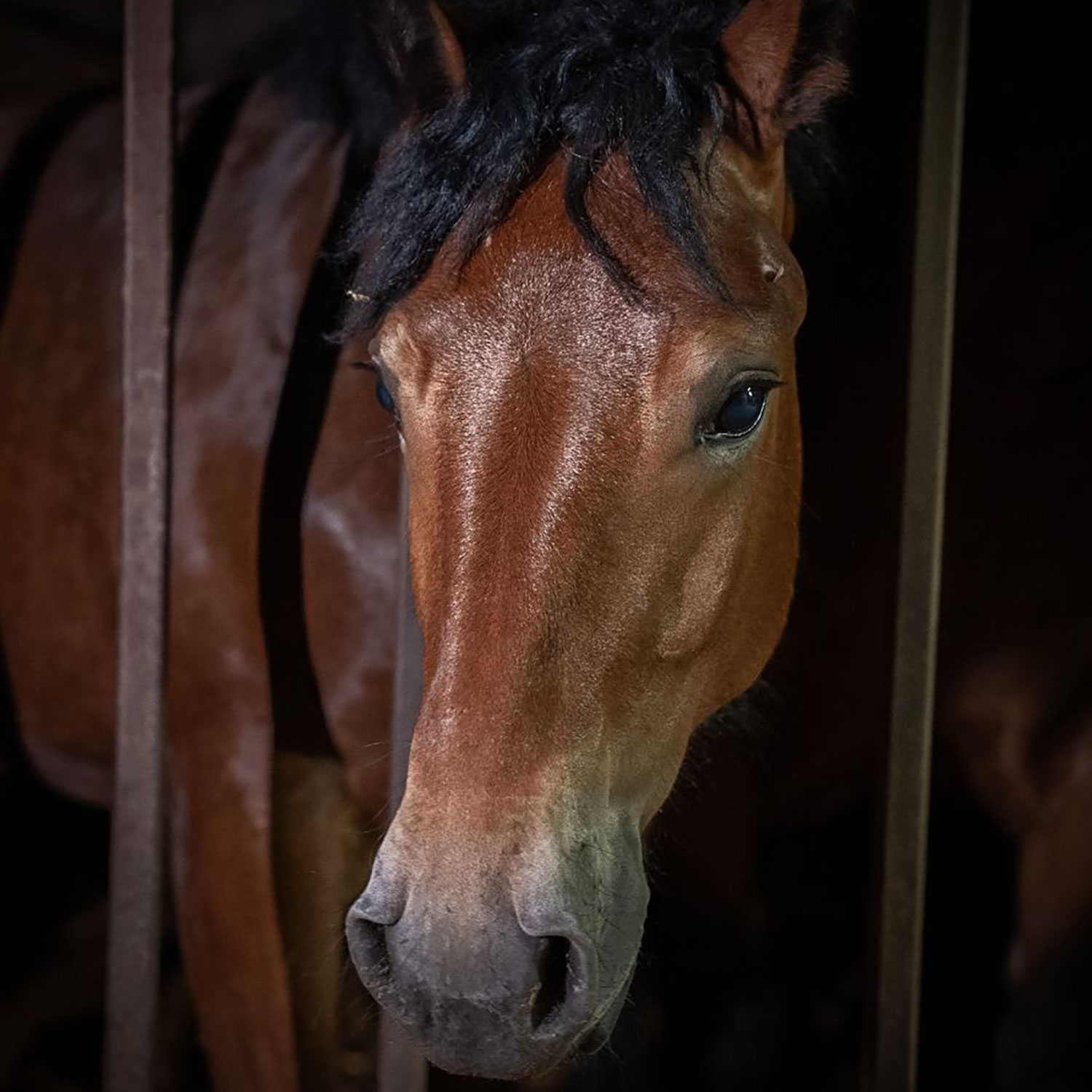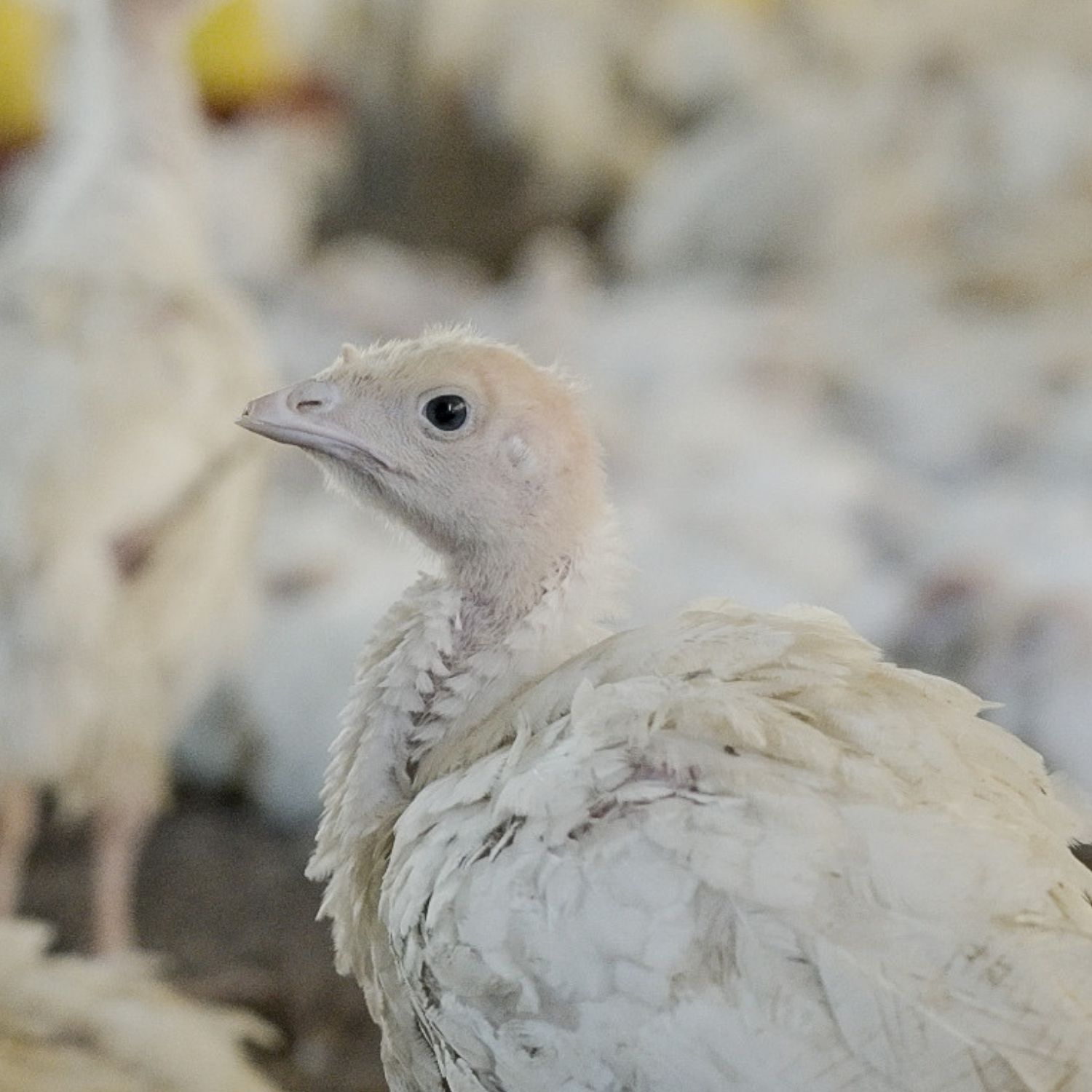Chicken Breed Study: McDonald’s Lags Behind On Animal Welfare
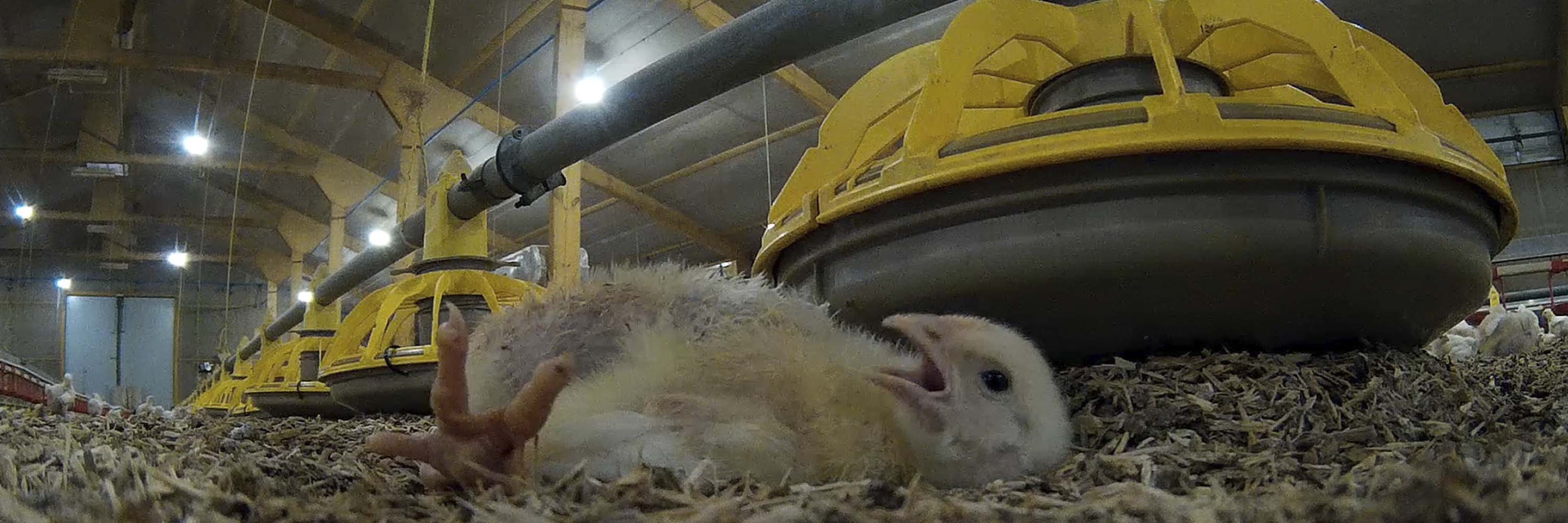
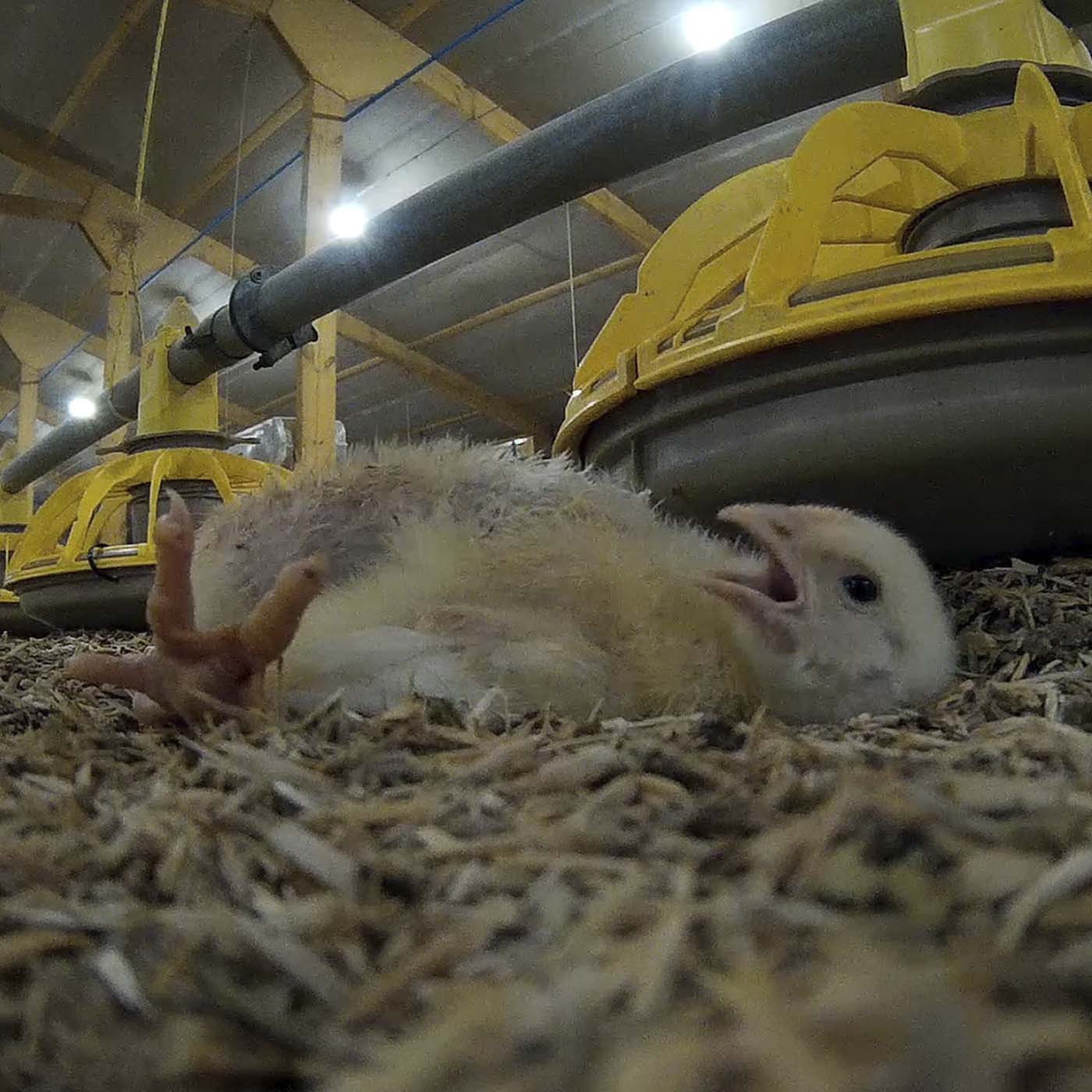
Global Animal Partnership (GAP) has released the first multi-disciplinary study of its kind with the University of Guelph looking into the animal welfare concerns for modern chickens. The results argue a clear motivation for moving away from genetically selected fast-growing chicken breeds, which are currently being used by many companies to increase profits.
THE FINDINGS: The study is the first to focus on chicken welfare indicators including tests of behavior, physiology, immunology, production, and meat quality together into one research project. The study, which included 7,500 birds from 16 different strains and took two years to complete, reported serious physical abnormalities and mobility problems associated with rapid growth.
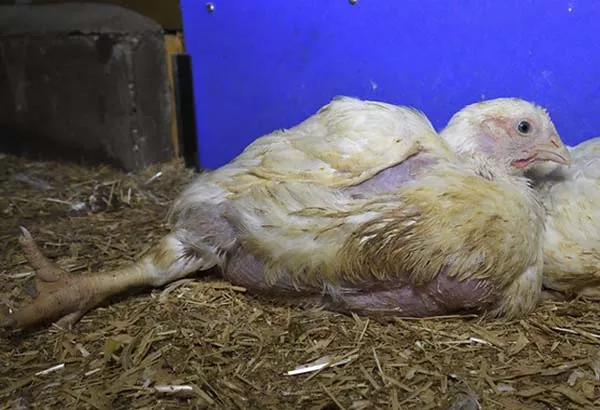
Results for faster-growing breeds compared to slower-growing breeds showed:
- fast-growing birds suffered from a higher incidence of painful footpad dermatitis and hock burn lesions;
- greater cellular damage to the muscle tissues and disproportionate cardiovascular development, suggesting a poorer level of health;
- an inability to stand as long and a reduced capability to move and access vital resources (feed & water);
- a higher incidence of both wooden breast (WB) and white striping (WS), two breast meat abnormalities that not only represent meat quality defects, but also negatively impact the birds’ welfare
CHANGE IS COMING: Unlike McDonald’s, over 350 leading food brands around the globe have already acknowledged the long-known suffering of fast-growing chickens and have plans to make changes to move to higher welfare chicken breeds. Companies including Burger King, Subway, and Popeye’s have all signed on to the Better Chicken Commitment, a set of standards that addresses the key animal welfare issues in the chicken industry.
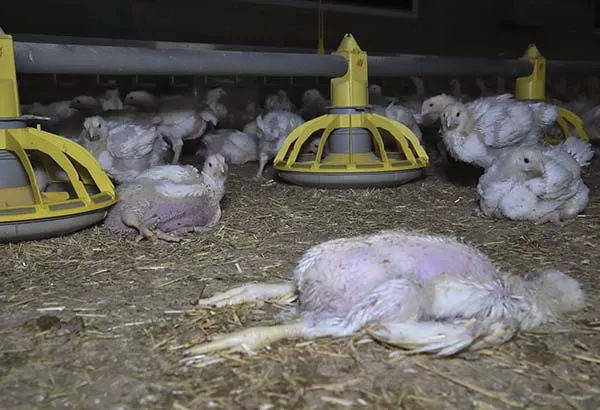
SUFFERING CAUGHT ON CAMERA: Last month, Animal Equality UK released an investigation of 12 chicken farms from a known McDonald’s supplier. The troubling footage showed chickens bred to grow so big, so quickly, that they suffer from excruciating leg injuries and are unable to carry the weight of their own oversized bodies.
WHAT WE’RE SAYING: Animal Equality’s Campaign Manager, Dane Charbeneau, says, “This study proves what we already know—valuing profit over social responsibility means painful consequences for animals. McDonald’s has been stalling for far too long and will continue to fall behind its competitors until it commits to higher chicken welfare.”
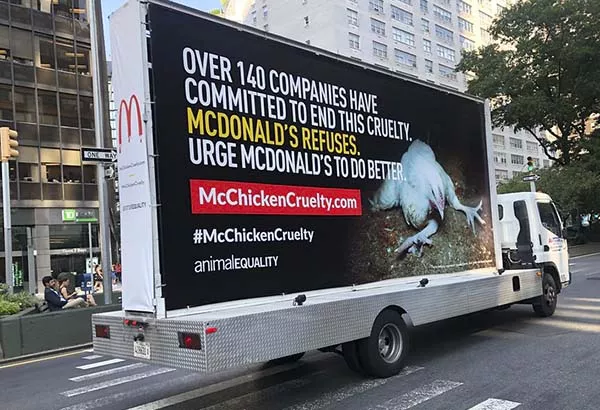
FIGHTING MCCHICKEN CRUELTY: For more than two years, Animal Equality has been part of a coalition of animal protection organizations calling on McDonald’s to make changes in its chicken supply chain. Hundreds of demonstrations involving activists such as actor Eddie Falco have taken place outside of McDonald’s restaurants, at its Chicago headquarters, and at shareholders meetings. Tactics such as aerial banners, a billboard in Times Square and one near the New York Times building, countless online actions, and over 300,000 petition signatures have been used to urge the company to change. After all these protests and actions, McDonald’s still continues to put animal welfare on the back burner.
THE LEAST MCDONALD’S CAN DO: The science-based standards we are asking McDonald’s to adopt for its suppliers have been determined by leading veterinarians and animal welfare experts, and are now backed by the GAP study. Companies must phase out the use of fast-growing chicken breeds, and as one of the most recognizable brands in the world, McDonald’s has the tremendous power to improve the lives of the hundreds of millions of birds who are bred each year for its menu items by making this change.
TAKE ACTION!: Learn more and sign our petition urging McDonald’s to change.
GAP is one of the largest animal welfare standards and labeling organizations in North America. Established in 2008, GAP impacts the welfare of over 416 million animals each year through third-party certification of more than 3,800 farms, supplying products to over 5,000 outlets. GAP believes that meaningful label claims, validated by third-party audits on every farm, are key to influencing the industry, raising consumer expectations, and creating long-lasting change for farm animals.
Note: The specific farms pictured and in investigation mentioned may not supply to McDonald’s, but Moy Park is a known supplier that McDonald’s works with.

